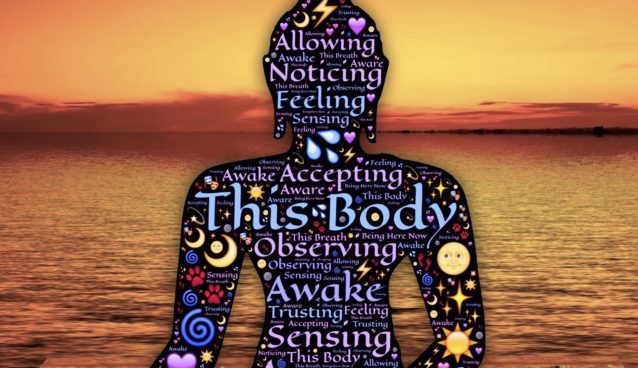Pragmatism

Table of Contents
Introduction
The English word ‘Pragmatism’ has been taken from the Greek word ‘Pragma’ which means ‘action’ or ‘work done’. Pragmatism means action, from which the word ‘ Practice’ and ‘Practical’ have come.
It is special type of philosophical doctrine of United States of America. This doctrine was first propagated by Charles Pierce in 1878. In later times, William James and John Dewey became famous as the main protagonists of this doctrine.
“Pragmatism is a temper of mind, an attitude, it is also a theory of the nature of ideas and truth, and finally it is theory about reality” – William James
Dewey Views on Education
“Development of all those capacities in the individual which will enable him to control his environment and fulfill his responsibilities” – John Dewey
Education is a process that begins with the birth of the child and goes on through out the whole life.
This process has two factors : –
(1) Psychological factors,
(2) Sociological factors,
of these two, psychology is the basis.
The main idea of this philosophical doctrine is that there is no eternal truth in this world. Everything on earth is constantly changing. with the changing of age, the society changes, the thought process of man changes, our idea about truth and falsehood changes. So the real truth is that which man discovers from the experiences of life and with the help of this truth he is able to effectively solve the diversified problems of his life. So the motto of pragmatic philosophy is to guide us build a better and more prosperous social system by arranging all round self-development of the individual through reconstruction of experiences and by making perfect co-ordination between the needs of the individual and the society.
Definition of Pragmatism
The following definition of Pragmatism will make the meaning more clear—
“Pragmatism offers us a theory of meaning, a theory of truth of knowledge and a theory of reality.” – James B. Prett
“Pragmatism is essential a humanistic philosophy maintaining that man creates his own values in the course of activity that reality is still in making and awaits its part of completion from the future, that to an ascertainable extent our truth are man-made products.” – J. S. Ross
Principles of Pragmatism
- Man is an Active Being : The pragmatists believe that man is primarily a biological and social organism. He reacts favourably to biological and social stimulation.
- Truth Changes : Pragmatists do not believe in pre-determined truth. According to them truth always changes according to time, place and situation. They also believe that a thing which is true to an individual at a specific time, place and situation, need not be true to others at some other place or time.
- Truth is formed by its results : According to Pragmatists, truth is not a fixed and definite entity. According to them, truth is a relative term which changes according to stages of development and situations. It is the result which goes to form or build truth. Those things are true which develop our personality to the full and which is for individual good and welfare of others as well.
- Problem is the source of truth : According to Pragmatists human life undertakes various experiments to solve the problems which confront him in course of his growth and development. The success of experiments is a search of truth. Hence problems are the motivating source of truth.
- No fixed Values and Ideals : The Pragmatists do not believe in any standard values in the world. Values are changeable. They change with times, with the philosophy and with circumstances. Values are man-made and are changing.
- Emphasis on Social and Democratic Values : Pragmatists holds that man is a social being. He is born in society and all his development takes place in and through society. Hence, Pragmatists uphold social and democratic attitudes and values.
- Principle of Utility : Pragmatism holds that the reality of a principle lies in its utility. Any idea or thing which is useful to us, is proper and right. It is of no use if it is improper, wrong and untrue. Only those ideas and things are true which have a utility for man.
- Importance of Activity : Pragmatism lays great emphasis on activity rather than on ideas. Ideas are born out of activities. Man is an active being. He learns by his activities.
- Importance to Man power : Pragmatism attaches great importance to the power of a man. By virtue of this power. man can create an environment useful, beneficial and conducive for his own development and welfare of the society.
- Faith in flexibility : Pragmatists firmly believes that nothing is fixed and final in this world. Everything grows, changes and develop. World is changing and everything is under a process of change. Human life is changing. Human being encounters various problems in his life. To find solutions, he employs all his mental faculties, learns experiences and use this resources of experiences to forge ahead on the path of progress and development.
Pragmatism and Education
The slogan of pragmatism is “change”. According to pragmatic ideology the world is liable to change. Nothing is permanent here in the world and no principle is true and valid for all times. This change has its has its effect on education also.
According to pragmatic theory, education is useful and purposeful if it contributes to human welfare and progress. All the aspects of education should be conducive to human good and human growth. Education must change according to the changing needs and requirements of changing society.
Characteristics of Pragmatic Education
1. Education is Life and Life is Education
Pragmatists emphasises that education is not a preparation of life, it is life itself. According to them, real knowledge cannot be gained through book rather it is gained only by the experiences of life. Through the experiences of life which he gathered during dealings of problems of life, an individual creates his own values and leads a better, richer and happier life. The processes of education continues through out the life.
2. Education is Continuous Reconstruction of Experiences
According to Pragmatism, real knowledge can be gained only by real life experiences. Moreover, these experiences changes with the course of time and situation and new experiences are gathered and accordingly, behaviour of an individual changes. This reconstruction of experiences continues throughout the life.
3. Education is a Social Process
To pragmatism, man is a social being. He reacts favourably to social stimulus. According to pragmatism, the education of a child happens through the medium of society. A child gains more and more knowledge through interactions with the society.
4. Child is the Centre of Pragmatic Education
Education is meant for child and not the child is for education. According to pragmatism, each child is born with inherent tendencies, aptitudes and capacities which can be drawn out and developed by education. Education of a child should be according to his interests, taste, inclinations and aptitudes so that he by his own efforts creates values for himself to solve diversified problems of life.
Pragmatism and Aims of Education
1. No fixed Pre-determined, Ultimate and General Aims of Education
Pragmatism believes that aims of human life always change with the change in time, places and circumstances. Hence, no specific aims of education can be pre-determined which holds true and good to all children at all times, places and situation. Thus , there should be different aims of education for different children for different times and circumstances.
2. Immediate or proximate Aims of Education
- To make an individual socially efficient.
- To enable pupils to gather experiences through activity.
- To help the pupil to adjust with himself and with the society.
- To help the pupil to reconstruct his experiences.
- To give importance to one’s individuality.
- To create balance between theoretical and practical activities in education.
Pragmatism and Curriculum
In the field of curriculum development, the following principles have been prescribed by Pragmatists :-
- Principle of Utility :- According to principle of utility, only those subjects, activities and experiences should be included in the curriculum which are useful to the present needs of the child and also meet the future expectations of life as well. As such Language, Physical health, Physical training, Geography, History, Science, Agriculture and Home Science for girls should be included in the curriculum. Provision of vocational and technical education should also be emphasised.
- Principle of Interest :- Curriculum should be based on principle of interests. According to principle of interests, only those activities and experiences should be included in the curriculum where child takes interest. Interests are of four variations – (a) Interest in conversation (b) Interest in Investigation (c) Interest in construction (d) Interest in Creative Expression. So, the curriculum should include Reading, Writing, Drawing, Craft-work, Natural Science and Practical works of simple nature.
- Principle of Experience/Social Experience :- The third principle of curriculum is the child’s activity, vocation and experience. The curriculum should include varieties of learning experiences which promote original thinking and freedom to develop social and purposeful attitudes. Project works, Community services, other practical based activities should find places in curriculum.
- Principle of Integration :- The fourth principle of pragmatic curriculum deals with integration of subjects and activities. Subjects of different nature should be closely interlinked and co-related to each other so as to form right concepts and proper understanding in children.
Pragmatism and Methods of Teaching
Pragmatists suggested the following methods for teaching :
- Self-Learning Method :- Self learning means learning through self-effort. The child should be encouraged to learn according to his/her natural interests, aptitudes, abilities and experiences. The method of teaching should provide such conducive experiences and productive activities which endows the child with capacities and powers to face boldly the problems and challenges of modern life.
- Learning by Doing :- Education should be imparted through activities and practical experiences. Such activities should be employed which gives rise to new ideas and clarify conceptions.
- Project Method/Problem Method :- In this method of teaching, teacher’s task is only to create situations of varied nature. Children are to identify the problem, make proper planning to solve the problem and through activities try to solve the problem preferably in scientific way. When the problem is solved, children develops new insights and create new values for there gradual progress and development.
Pragmatism and Role of Teacher
Teacher works as a friend, philosopher and guide to the students.
Teacher has to do two important tasks :-
- Come close to children
- Full understanding of conditions and situations of the society
Teacher should make close contacts with children to know their interests, aptitudes and capacities.
Teaching Tasks :-
- To arouse the curiosity of children.
- To arouse the interests of the children.
- To create situations and problems according to interests of the child.
Pragmatism and Discipline
- Self-Discipline :- The discipline in pragmatic system of education is to be self-discipline, the discipline of the pupil’s own work.
- Social Discipline :- Pragmatists advocates the merging of play with work, like Project Method of Teaching. This merging of play with work will develop Self-Confidence, Co-operation, Sympathy, Feellow-Feeling for others. These social qualities will develop a sense of social discipline and sense of social responsibility.
Contribution of Pragmatism in Education
Some of the important and interesting innovations of pragmatic theory in teaching-learning process are :-
- Child-Centered Education :- Pragmatism contributes to the idea of Child-Centric Education. Education to be provided to the child according to his interests, aptitudes and capacities. Moreover, conducive environment of education is to be provided to child so that he/she can practice Self-Learning Method.
- Contribution to the Idea of Social Education :- Pragmatists hold that child’s proper development can be happened only through the medium of society. Education should be imparted to develop social qualities, social discipline and a sense of social responsibilities.
- Contribution in Practising Democracy in Education :- Inculcation of social qualities and a sense of social responsibilities in a child brings harmonious adjacent and a spirit of freedom. Education according to child’s interests, aptitudes and abilities give rise to the idea of democracy in education.
- Contribution of Project Method :- In the field of method of teaching, pragmatism has given birth to ‘Project Method’. Through this method, a child indulges in varies creative activities and solve the problems according to his/her aptitudes and capacities.
- Greatest Contribution of Principle of ‘Learning-by-Doing’ :- The greatest contribution of pragmatism is the principle of ‘Learning-by-Doing’. An individual learn through activity. Through activities, a child learns by his own effort as well as develops feeling of co-peration and fellow-feeling



